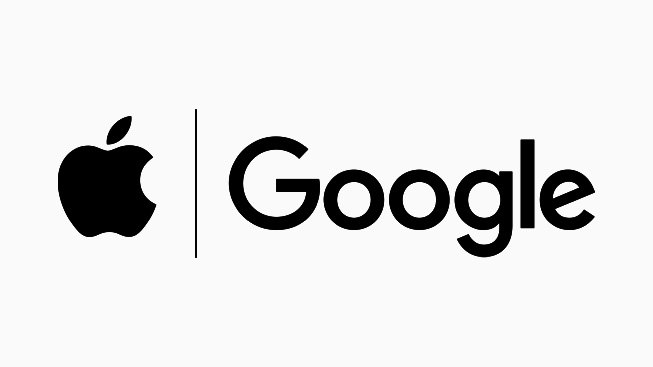Main Highlights
- Apple and Google pulled jailed Russian opposition leader Alexei Navalny’s voting program from the iOS and Android app stores.
- Faced with Kremlin pressure, Apple and Google deleted a smartphone app built by the opposition that advises voters which candidates are likely to beat those favored by Russian authorities.
- The Russian government has waged an ongoing campaign against Navalny’s app, which was designed to mobilize votes against Putin’s party in Russia’s legislative election.
- The country’s internet censor threatened to punish Apple and Google earlier this month, claiming that maintaining the app on the store constituted electoral meddling.
Under government pressure, Apple and Google pulled jailed Russian opposition leader Alexei Navalny’s voting program from the iOS and Android app stores. According to the New York Times, the removal came as a result of threats to legally prosecute business personnel in Russia.
Faced with Kremlin pressure, Apple and Google deleted a smartphone app built by the opposition that advises voters which candidates are likely to beat those favored by Russian authorities, as polls opened for three days of voting in Russia’s parliamentary election.
According to a spokeswoman for Russian President Vladimir Putin, the app was “illegal,” and Apple and Google responded, “in line with the law.” Navalny aide Ivan Zhdanov termed the removal “a disgusting act of political suppression” on Twitter.
The electoral meddling
The Russian government has waged an ongoing campaign against Navalny’s app, which was designed to mobilize votes against Putin’s party in Russia’s legislative election. The country’s internet censor threatened to punish Apple and Google earlier this month, claiming that maintaining the app on the store constituted electoral meddling. Apple temporarily halted app upgrades, but neither firm deleted it at the time.
Censors in Russia have blocked websites associated with Navalny, and the pressure on Apple and Google is part of a wider assault on international technology companies. Twitter was throttled in Russia for allegedly failing to delete unlawful information, and earlier this week, a court punished Twitter and Facebook (as well as messaging service Telegram) for illegal content. In May, a judge punished TikTok for identical violations. Requests for comment from Apple and Google were not immediately returned.
Apple has already been chastised for banning protest and media applications from China. The removal of the Navalny app also threatens to contradict one of its arguments in a recent privacy issue involving the scanning of iCloud photographs. While Apple claims that the technology would be solely confined to locating child sexual abuse content, detractors fear that the firm may succumb to demands from authoritarian regimes to extend it, something Apple has consistently rejected.

“Apple’s argument for deleting voting guidelines is that they must follow the laws of the countries in which they operate. Despite this, if lawmakers insist that they extend their picture scanning corpus, they claim they will refuse,” tweeted John Hopkins University professor and cryptographer Matthew Green, one of the scanning system’s most vocal opponents. “Will they breach the law in that instance but not in this one?”
Navalny is serving a two-year jail sentence for breaking parole for a prior conviction that he claims were politically motivated, and some of his senior friends have been charged with crimes. Many people have fled the nation. In a judgment that exposes hundreds of persons affiliated with the groups to prosecution, Navalny’s Foundation for Fighting Corruption, as well as a network of regional offices, have been blacklisted as extremist organizations.
His team’s websites have been banned, and dozens of regional offices have been shuttered. The authorities have also tried to ban the Smart Voting website, although some internet users are still able to access it. Navalny’s team also developed a Smart Voting chatbot for the messaging app Telegram, as well as a list of candidates Smart Voting supports in Google Docs and on YouTube.
Representatives from Apple and Google were invited to a meeting of Russia’s upper chamber of parliament, the Federation Council, on Thursday. In a subsequent statement, the Council’s panel on safeguarding national sovereignty stated that Apple agreed to assist Russian authorities. Apple and Google did not reply to a request for comment from The Associated Press on Friday.
According to a person with firsthand knowledge of the situation, Google was compelled to delete the app due to legal requests from regulators and threats of criminal prosecution in Russia. Russian police also visited Google’s Moscow offices Monday to implement a court order to ban the app. Because of the sensitivity of the subject, the source spoke on the condition of anonymity.
How was Apple and Google’s move perceived?
Mr. Navalny’s team was outraged by the decision, claiming that the firms had made a detrimental surrender to the Russians. “Removing the Navalny app from stores is a disgraceful act of political censorship,” stated Ivan Zhdanov, a Navalny aide, on Twitter. “Russia’s autocratic government and propaganda apparatus will be overjoyed.”
The rulings were also criticized by Western free-speech groups. “The corporations are in a pretty tough situation, but they have placed themselves there,” said David Kaye, a former United Nations officer in charge of examining concerns of free expression. “They are, in effect, carrying out a form of Russian repression. Whether justifiable or not, it is complicity, and the corporations must explain why.”